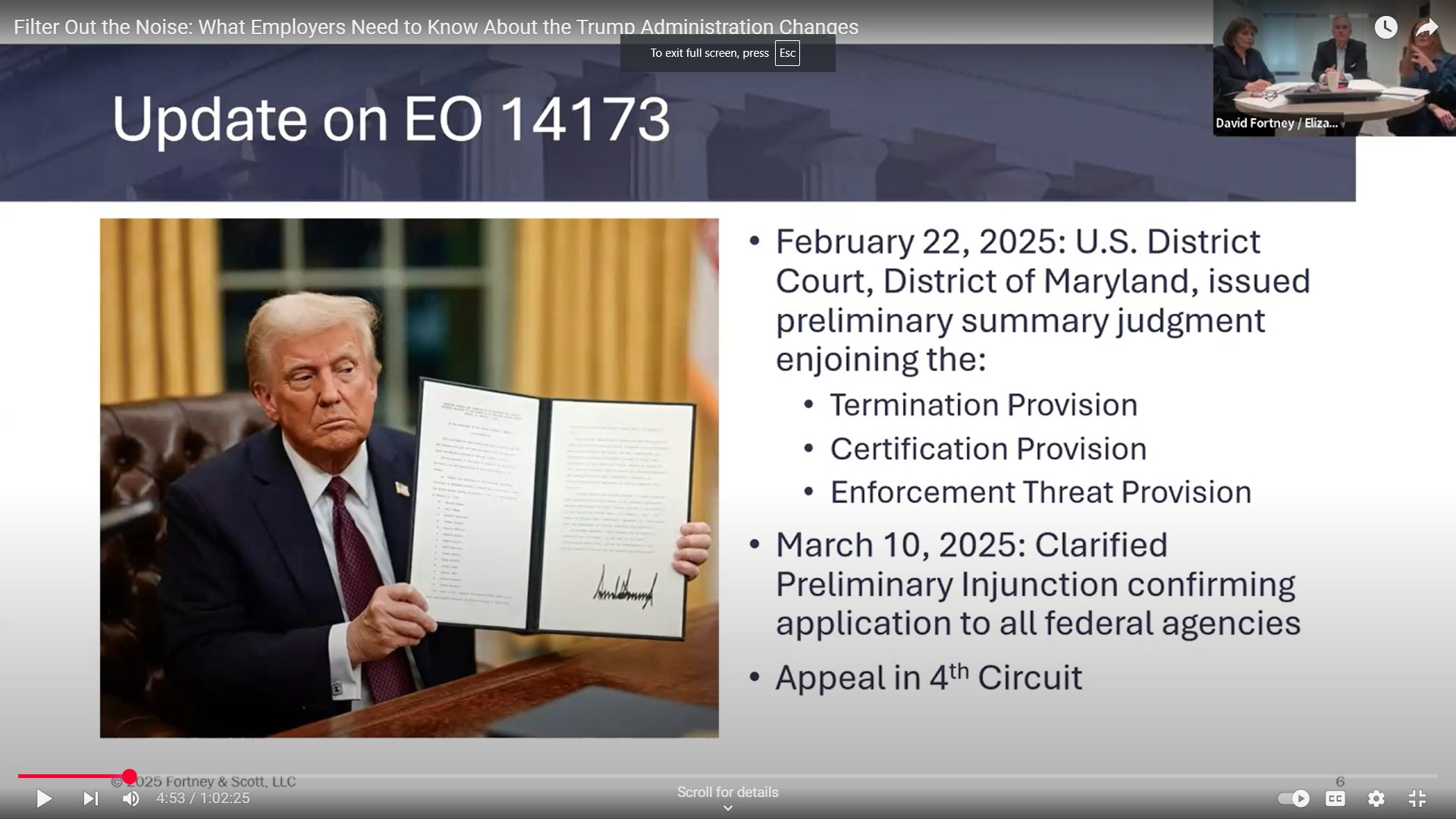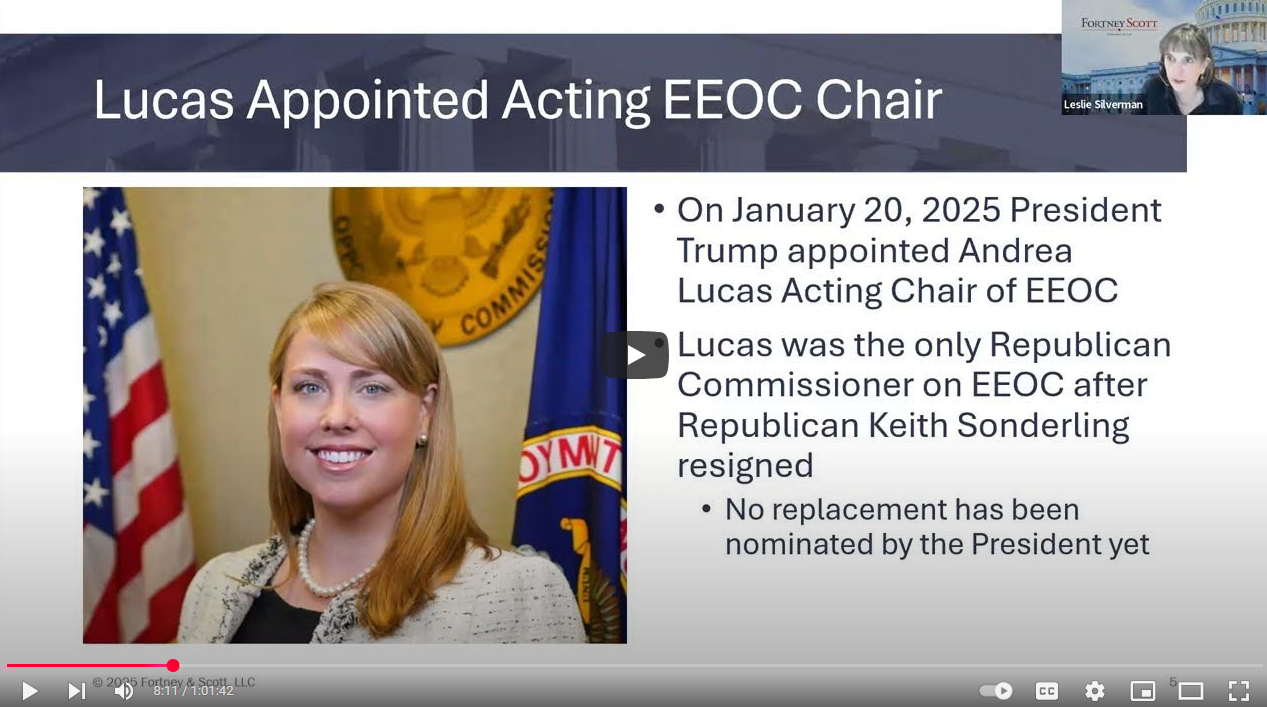Pay Equity Bulletin, Volume 6, Issue No. 2
Keeping you up to date on equal pay
developments and trends.
Paycheck Fairness Act stalls in Senate. On June 8, Senate Republicans blocked the Paycheck Fairness Act from advancing to the Senate floor for consideration. The bill, which was aimed at closing the gender pay gap, needed 60 votes to move forward, but it was voted down 49-50, with all but one Republican Senator opposing the legislation. The bill passed the House of Representatives in April; however, its failure to advance in the Senate was expected as Republican lawmakers had publically opposed the bill. The legislation sought to materially amend the Equal Pay Act by significantly narrowing employers’ primary defense to pay discrimination claims – that an identified pay disparity is the result of a factor “other than sex.” If passed, the bill would have required employers to prove that any disparity was due to “a bona fide factor other than sex, such as education, training, or experience.” The Paycheck Fairness Act would also have instituted a national pay transparency requirement and a nationwide ban on requests for prior salary history of applicants. Republican lawmakers opposing the legislation argued that it would essentially eliminate an employer’s ability to differentiate employees' pay based on employees’ skills, qualifications, or experience without being subjected to litigation.
Women suing Google for pay discrimination win class-action status. On May 27, former female employees of Google won their bid for class-action status in a gender-pay discrimination lawsuit against the tech giant brought on behalf of nearly 11,000 women. The lawsuit, which was filed in California state court in San Francisco, alleges that Google pays women less than men who do the same jobs in violation of California’s Equal Pay Act. Specifically, the plaintiffs claim that they were put into lower career tracks which resulted in them receiving nearly $17,000 less per year than similarly situated male colleagues. Plaintiffs also claim that Google had a policy of asking applicants for prior salaries, which violated California’s Unfair Competition Law and perpetuated lower pay for women employees. The plaintiffs now seek more than $600 million in damages from Google.
The decision to certify the class claims against Google is similar to a ruling last year which awarded class status in a pay discrimination case against Oracle and may represent a trend in how pay discrimination claims are being pursued. Prior to these decisions, female employees at Twitter and Microsoft had failed to win class status for claims brought in federal court under Title VII. However, the plaintiffs in the Google and Oracle cases benefited from California’s employee-friendly Equal Pay statute which compares jobs that are “substantially similar", rather than the narrower “substantially equal” standard used for federal claims. These recent successes may lead to more pay discrimination claims being pursued in California, as well as other states which have enacted employee-friendly pay laws.
Colorado’s new pay transparency law overcomes early challenge, remains in effect. The U.S. District Court for the District of Colorado denied a request for a preliminary injunction halting Colorado’s new pay transparency law. Colorado’s Equal Pay for Equal Work Act, which went into effect on January 1, 2021, is aimed at closing the pay gap and requires Colorado employers to issue compensation ranges for all job postings, including internal promotions. These requirements also apply to out-of-state employers with Colorado employees. Employers who fail to comply with the requirements will be subject to civil fines up to $10,000. In December of 2020, prior to the law going into effect, the Rocky Mountain Association of Recruiters filed a lawsuit claiming that the law’s pay transparency requirements are unconstitutional. The plaintiff sought a preliminary injunction halting the pay transparency requirements arguing that it unduly burdened employers. However, in denying the request the Court found that the plaintiff had failed to show any undue burden on employers and that the law is reasonably related to the state’s public interest in reducing the gender-based wage gap. Colorado is one of several states, including California and Maryland, that have passed similar laws aimed at closing wage gaps, and lawmakers in a number of other states are already considering legislation that would impose pay transparency requirements like those in Colorado. The court’s decision to deny this early challenge to the Colorado statute may lend support to those lawmakers in other states pushing for similar requirements.















